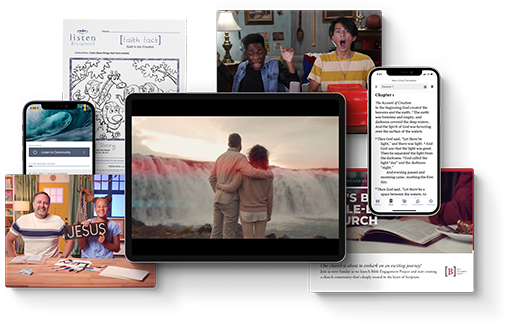Preaching for a Decision
By Chris Colvin | Posted In
What do you want out of your sermon? How do you want listeners to respond? From the beginning of your message, you need to have a goal in mind. Part of that goal should be for people to make a decision.
It’s been said, “We don’t make decisions; we make disciples.” And that’s true. But when you look through the Gospels, every time Jesus called one of His disciples, there was a moment of decision. Simon and Andrew left their nets behind. James and John left their father in the boat. Matthew left his post at the tax collector’s booth. All of them made a decision to follow Jesus.
Such turning points should be the objective of your preaching. At the end of a sermon, your people should be presented with a decision to follow Jesus, or to follow Him more closely. Whether saved or unsaved, each person can make a decision of some kind.
On its own, raising a hand or coming to the altar does not change a life. But a response to the invitation of the Holy Spirit — a response that is honored — has eternal implications.
Yes, some decisions are driven primarily by emotion. However, the very act of deciding may make it easier for a person to take more steps later. Making a decision helps cement a commitment.
How to Get There
Getting people to make a decision can be difficult. But the importance of this moment makes it worth the thought and effort you put into it. Here are five things to keep in mind as you prepare:
1. Clearly state the call. Use precise language, and be specific about the choice you are presenting.
Preachers often think the best response is the biggest. However, I’ve been in services where the response call was so vague everyone could raise a hand. Each person should understand the call and the decision he or she is making.
Let the unsaved know specifically what they need to believe before coming to Christ. Use words that leave no room for misunderstanding. Instead of “mistakes,” say “sin.” Instead of “good life,” say “eternal life.” It’s often helpful to repeat the same thing once or twice so people really hear it.
2. Connect the dots. At the end of your message, you should be looking back as well as forward. A decision based on the whole of your sermon ties everything together from the intro all the way to the conclusion. Explain how this decision is the right response to everything the congregation just heard.
A response to the invitation of the Holy Spirit has eternal implications.
That process begins earlier than you might think. Throughout your message, use words and applications that build anticipation for the given response. For instance, if you are preaching an evangelistic sermon, reinforce each point with the phrase, “When you believe in Jesus … .” Then, at the end, you can invite people to do just that.
3. Be concise. Preachers often feel the need to use as many words as possible to get a response. The response time is crucial, and it deserves attention.
However, it’s possible to talk someone out of a decision. As the call goes on and on, the immediacy starts to wane. People may check out and decide against responding.
Use fewer words, getting to the point quickly. This gives people a chance to respond quickly and obediently to the Holy Spirit’s prompting. Such a response will help them later as they continue following Jesus.
4. Use consistent messaging. Some people will not make a decision today. But perhaps they will come back next week, and the week after that. When they hear a consistent message from you, it reinforces the need to respond.
The words you use may be unique to you, but they should be consistent. Do you use words like “disciple” or “Christ follower”? Do you talk about “getting saved” or “accepting Jesus”? These are different ways of saying the same thing. Whatever language you choose to use, be consistent.
The best way to accomplish this is by writing it out. That may even include the prayer you have others say when they accept Christ. Refer to it often until the repetition of these words and phrases comes naturally.
5. Come prepared. Finally, make sure you are ready for the response. If you fail to plan, you plan to fail. But when you have an idea of what to expect, you will be ready to serve those who respond.
Make sure everyone is on the same page. Talk it over with your worship leader so the chosen songs are the best fit and it is clear when the musicians should start playing. If you have a team of people praying with those who respond, make sure they know the cue to come forward.
Practice what you will say. In fact, write it out and go over it in front of others. Have them help you with the wording. This goes for the prayer you will lead people through as well.
Preachers sometimes feel weird about practicing their prayers beforehand. They may believe prayer is most effective when it’s spontaneous. However, many of the best prayers in the Bible were written out and repeated over and over again. And God will honor your preparation.
What you prepare for is what you will get. If you want people to make a decision, then be ready for it. Give them your best, and they will see your genuineness and respond in kind.


